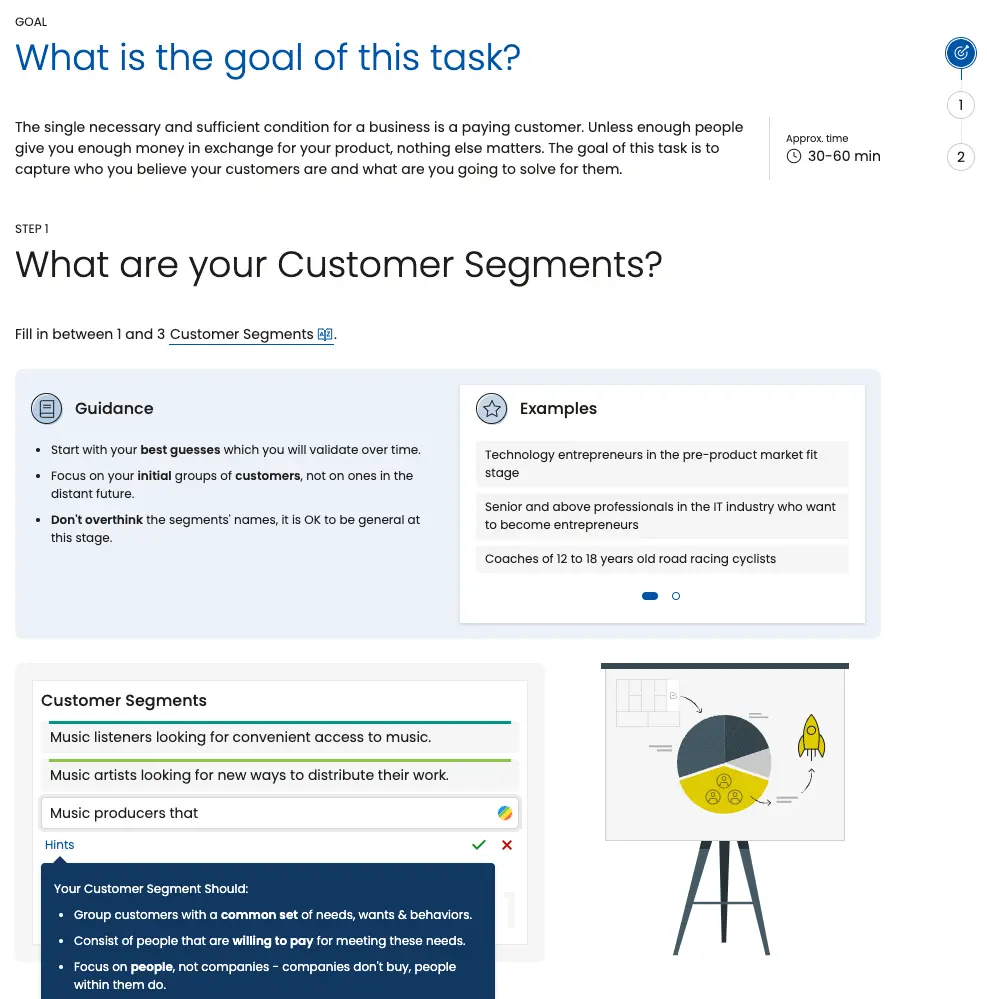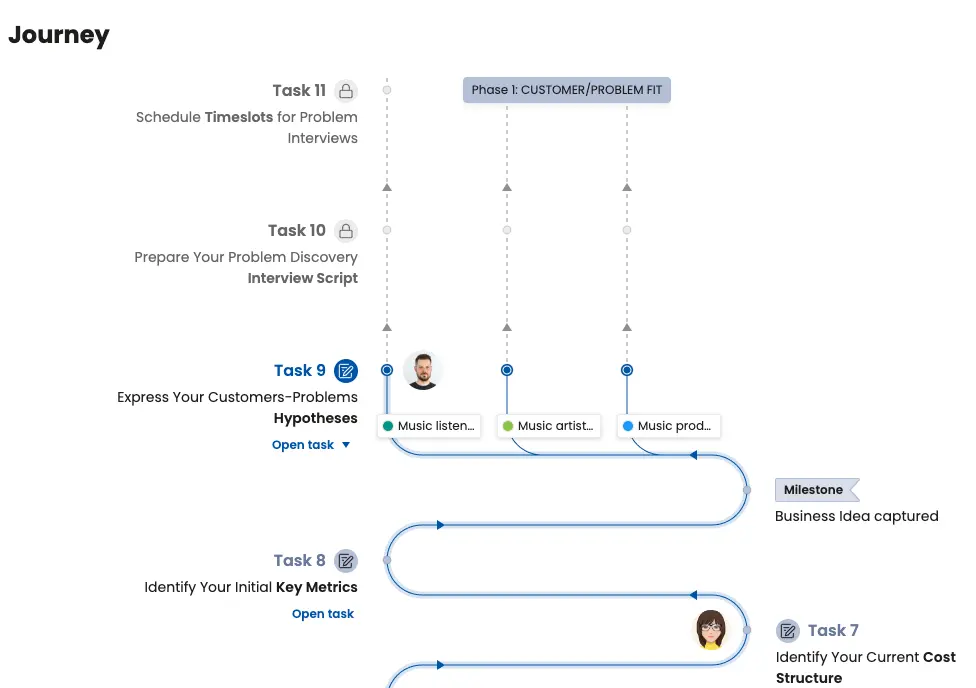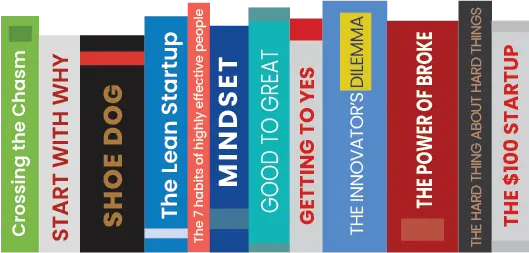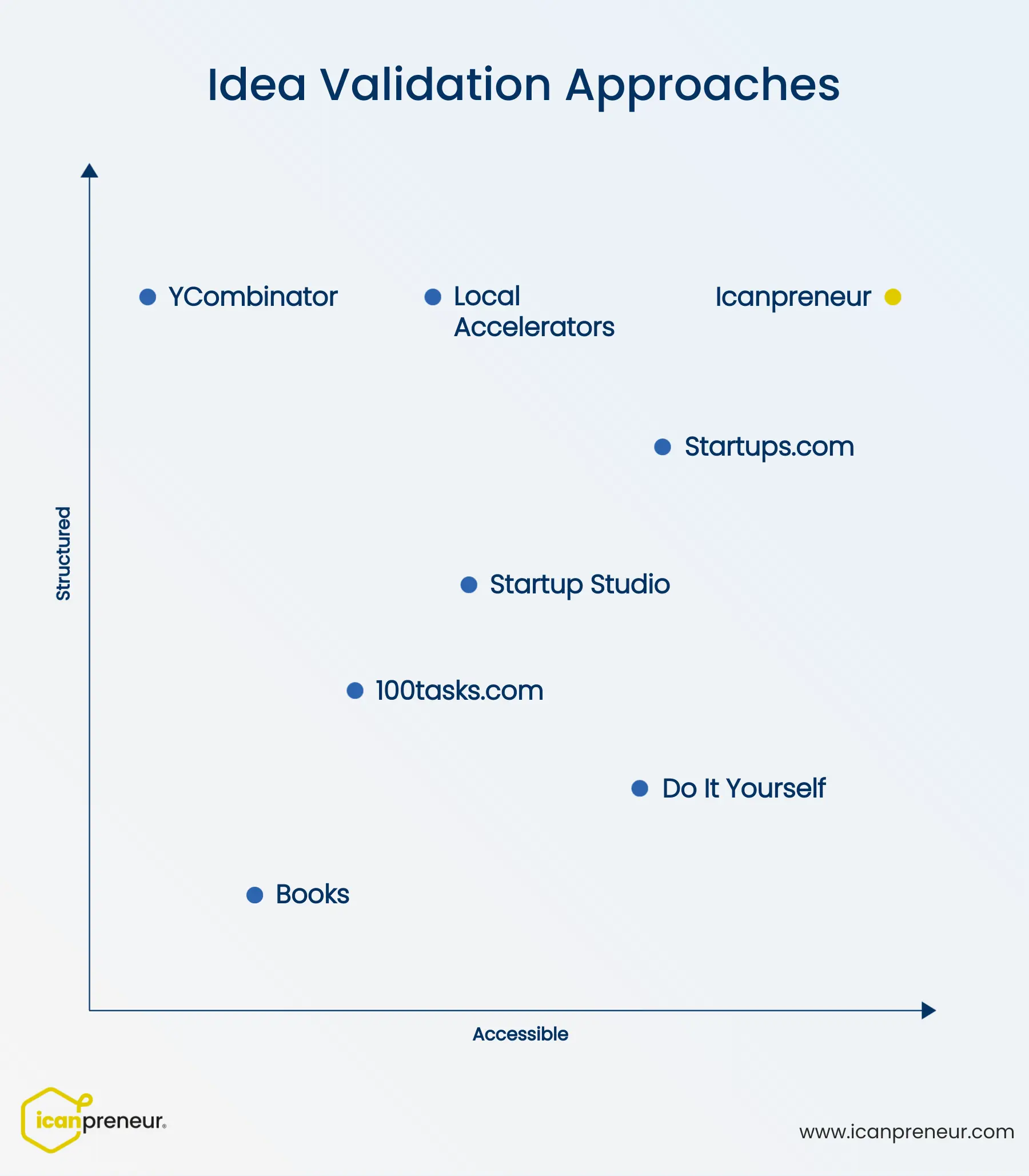8 Best Ways to Validate Your Product Idea
Aug 20, 2024 • 8 min read
Are you sitting on a groundbreaking idea but still need to figure out if it will resonate with your target market? Do you need more confidence to quit your full-time job and go all-in with your idea? Or have you already fully dived into your startup and want to progress towards product-market fit.
In this article, we share eight different approaches you can take to validate your business idea based on our experience so far. However, before diving into those let’s discuss why idea validation is even a thing?
Why Idea Validation Matters?
According to the latest studies, 9 out of 10 startups fail, and the root cause directly or indirectly boils down to startups solving the wrong problem. That’s building a solution for which there is no market.
That’s why successful startups validate their idea with the market before building an actual product. This increases their chances of success by delivering a product much more attuned to their target customer. There are no better ways to demonstrate the importance of validating your idea than this short by our team:
Here are some paths you can take to validate your idea.
1. Icanpreneur
Icanpreneur is a platform for entrepreneurs and product builders that offers a guided step-by-step approach from an idea to product-market fit. The platform is based on proven methodologies and provides all the needed guidance, examples, and tooling to get to market success.
An integral part of the platform is the Icanpreneur community, where entrepreneurs and product leaders come together to exchange ideas and experience and support each other.
Icanpreneur combines established methodologies and processes, such as Lean Canvas and Customer Problem Interviews, that empower novice and seasoned entrepreneurs to validate their product ideas, one step at a time.
For those with less experience, the platform provides instructions and examples for progressing toward their most important objective: getting their idea validated.
For seasoned entrepreneurs, Icanpreneur brings all the necessary tools together boosting performance with seamless integration and team collaboration enabled. The platform is especially useful for doing your own market research using customer interviews.

Strengths
- Step-by-step guided approach based on proven methodologies
- All the necessary tooling in one place with contextual tips and examples
- Encourages collaboration and team play
Weaknesses
- Icanpreneur is an early stage product that is still developing rapidly. As one of the platform's early adopters, you will have the chance to pioneer a new approach to entrepreneurship based on a structured approach, proven methodologies, and a supportive community.

2. Do It Yourself
Many entrepreneurs and product leaders prefer to validate their ideas in their own way. They rely on their gut feeling to determine the best course of action based on their experience and intuition.
This has been the default path for many entrepreneurs, and it has resulted in today’s 90% failure rate of startups. Many of the reasons for this high failure rate are rooted in:
- Solving a problem that the target customers don’t have.
- Solving a problem that is not important enough for target customers.
- Creating a solution that doesn’t solve the customers’ problems.
In other words, there is a lack of product-market fit.
Strengths
- Low-cost method
Weaknesses
- Chaotic and unstructured entrepreneurial path
- Higher risk of bias in evaluating feedback and data
3. Books
There are many excellent books about validating your business idea. Titles like “The Lean Startup” by Eric Ries and “Crossing the Chasm” by Geoffrey A. Moore are classics in the field.
However, entrepreneurial books are one of those cases in which “more” means “overwhelming.” While there are excellent titles, finding the one you need right now is hard. And extracting the information that is useful to you from the hundreds of pages requires time and dedication. Finally, the knowledge you extracted must be activated and applied in practice.
Books are a great source of wisdom, but sadly, in the fast-paced environment of entrepreneurship, we don’t always have the luxury of time to read and reflect.

Strengths
- Insights from industry leaders and veterans who spend years building or researching the way to get to product-market fit
Weaknesses
- Time-consuming compared to other methods
- Scattered knowledge that needs to be captured, adapted, and activated
- Abundance of resources that can be overwhelming
4. Y Combinator
Y Combinator is one of the most renowned startup accelerators globally. Companies like AirBnb, Dropbox, Stripe, Reddit, and others have benefited from its guidance, support, and network.
YC offers early startups an intense, time-boxed acceleration program. Due to the limited bandwidth of 1:1 connections with mentors and lecturers, the seats are limited, and the selection process is rigorous. When selected, the time and availability commitments are high — the program happens onsite in San Francisco, and you are entirely dedicated to it for several months.
 Image's source: cnbc.
Image's source: cnbc.
Strengths
- World-class expertise from successful founders and investors
- The brand power of YC
Weaknesses
- Highly competitive acceleration program
- Extremely demanding in terms of time and availability
- Time-limited
5. Local Accelerators or Incubators
Local accelerators and incubators in your regions are an alternative to global accelerators like YC. They follow a similar approach with an admission process and intensive time-boxed program but are near you. They usually feature well-recognized industry leaders from the region and mentorship from successful local entrepreneurs.
Examples of strong European accelerators include:
- Seedcamp in London, which has supported companies like UiPath, TransferWise, and Revolut,
- Station F in Paris, the world's largest startup campus that offers a wide range of specialized programs,
- Startup Wise Guys in Estonia, known for its focus on B2B startups across Central and Eastern Europe.
Local accelerators might be part of global networks like Founders Institute or Tech Stars. This offers the best of both worlds—the brand recognition of a well-known institution, which investors and customers appreciate, and the convenience of not having to reallocate for an extended time.
Strengths
- Easier to get into than global accelerators
- Relying on famous regional startup leaders
- It is more accessible and less demanding in terms of reallocation
Weaknesses
- Weaker credibility than YC
- Networking opportunities are localized
- Time-limited
6. Startup Studio
Startup Studios are service companies that specialize in working with startups. Their product development process is adjusted for fast-paced interactions and agility.
Startup Studios often offer the option of being compensated with equity rather than cash, which is a compelling alternative for startups with limited budgets. Many startup studios have the expertise and knowledge to walk you through idea validation and be your trusted partner.
Strengths
- Provides strong expertise if you don’t have that in the team
- Extension of your team that can fill in some of the functional gaps
Weakness
- Outsourcing a core activity in your business to an external party
- Cost intensive - either in cash or equity
7. 100tasks.com
100Tasks offers a comprehensive step-by-step guide for startup builders. This platform, created by Martin Bell, provides a structured approach to building and scaling your startup with a community of over 20,000 active startups.
Strengths
- A structured, systematic approach to building a startup.
- Plug-and-play tools like Powersheets, financial models, and pitch deck templates.
Weaknesses
- Subscription costs may be a barrier for some.
- It may require additional tools or platforms for specific needs.
8. Startups.com
Startups.com offers a suite of products that target different needs of entrepreneurs and product leaders, like:
- Education: a rich set of educational courses
- Planning: tools for building a business plan
- Paid mentorship
- Marketing platform
Strengths
- Dedicated startup advisor to guide you.
- Access to 650+ video classes and expert advice.
- Networking opportunities through curated events and peer groups.
Weaknesses
- Lack of an integrated entrepreneurial journey. Startups.com offers solutions for specific pieces of getting to product-market fit but doesn’t provide a holistic step-by-step process to getting there.
- Disconnected tooling from education. Entrepreneurs often have to expand their expertise beyond their core skills. Offering products that integrate educational and guiding elements is crucial for time efficiency.
- Information overload may require prioritization of resources.
On the following chart, we positioned all eight alternatives evaluated based on two criteria:
- How structured is the approach?
- How available the approach is in terms of physical, economical, and selection criteria?

Wrap-up
Depending on your previous experience and the skillset of your founding team, different options might be the best for you. Regardless of the route you choose, ensure you follow a process that will provide evidence and confidence in the outcome of your validation. This is the most critical factor for increasing your chances of building a product with market success.
Author
Product @ Icanpreneur. Coursera instructor, Guest Lecturer @ Product School and Telerik Academy. Angel Investor. Product manager with deep experience in building innovative products from zero to millions of users.
